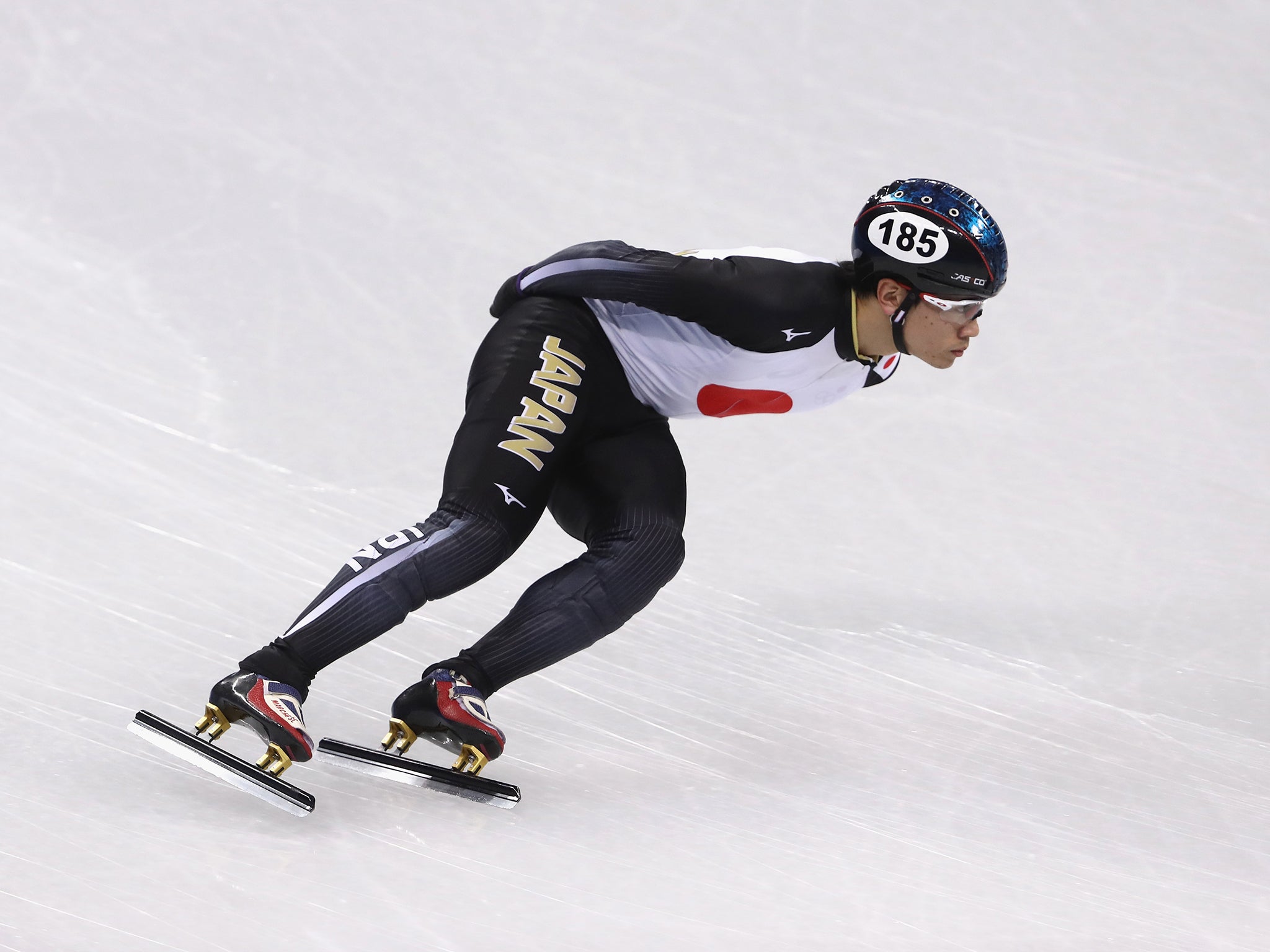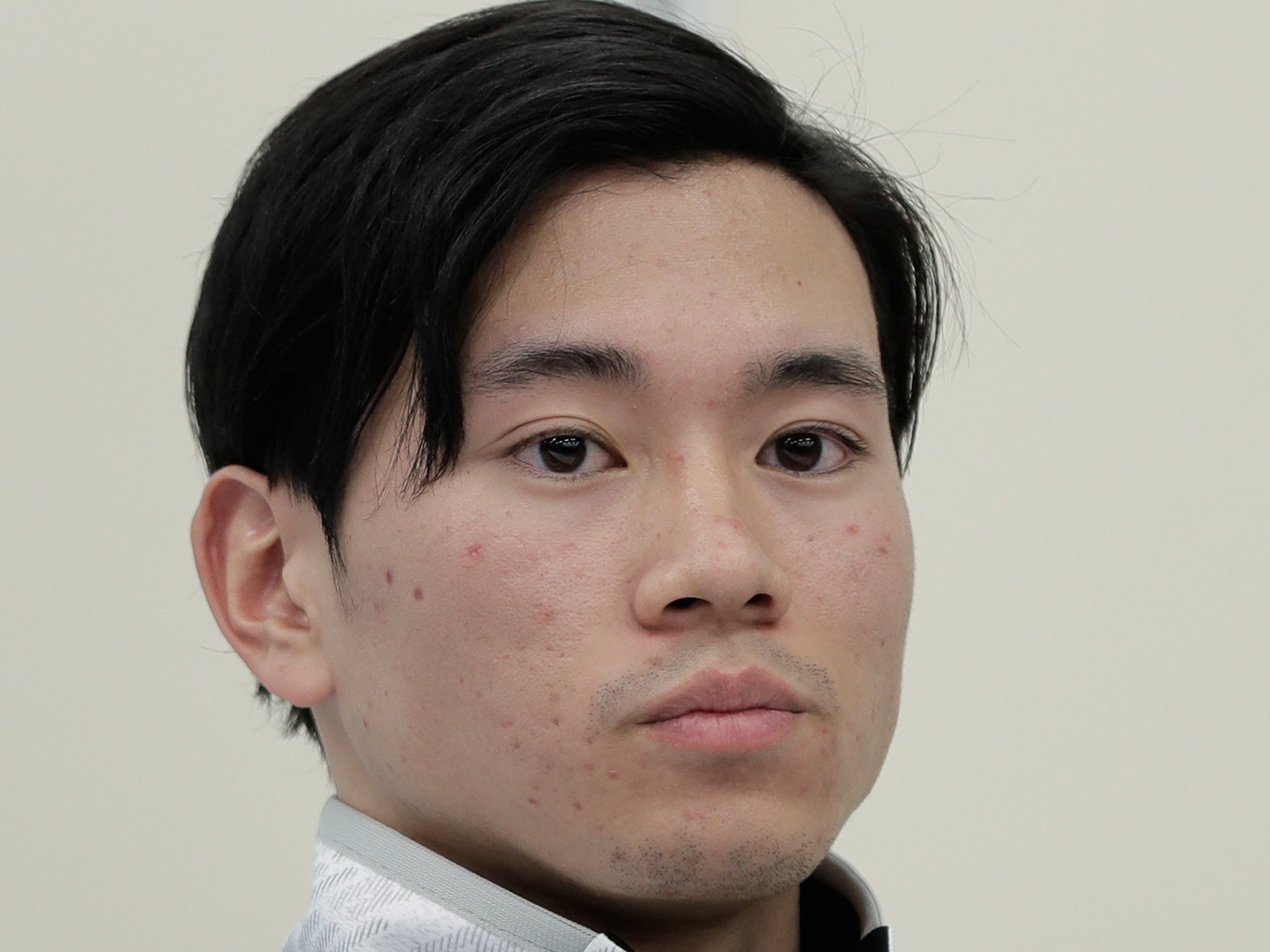Winter Olympics 2018: Japan ice skater Kei Saito tests positive for banned substance in first failed drugs test
The 21-year-old tested positive in Pyeongchang for acetalozamide, which can act as a masking agent but also to treat glaucoma and altitude sickness

Your support helps us to tell the story
From reproductive rights to climate change to Big Tech, The Independent is on the ground when the story is developing. Whether it's investigating the financials of Elon Musk's pro-Trump PAC or producing our latest documentary, 'The A Word', which shines a light on the American women fighting for reproductive rights, we know how important it is to parse out the facts from the messaging.
At such a critical moment in US history, we need reporters on the ground. Your donation allows us to keep sending journalists to speak to both sides of the story.
The Independent is trusted by Americans across the entire political spectrum. And unlike many other quality news outlets, we choose not to lock Americans out of our reporting and analysis with paywalls. We believe quality journalism should be available to everyone, paid for by those who can afford it.
Your support makes all the difference.The first positive doping test has been produced at the 2018 Winter Olympics after Japanese short-track speedskater Kei Saito returned a sample that had traces of a banned diuretic in is.
The 21-year-old ice skater tested positive for the banned substance acetalozamide, which can be used to treat conditions such as glaucoma and altitude sickness. The drug can also be used as a masking agent though, which hides the use of other banned substances.
Saito issued a statement on Tuesday to deny intentionally doping and said he was "extremely shocked" by the results.
"I have never considered doping,” he said in the statement. “I have never used anabolic steroids so I have never needed to try to hide it.”
Saito, a reserve on the 5,000-meter relay team, did not race in any event before the test result from a pre-competition sample was confirmed. The Court of Arbitration for Sport [Cas] said its judging panel handling Olympic doping cases will issue a final verdict after The Games are over.
The Cas announced the case on Tuesday, saying Saito "accepted on a voluntary basis to be provisionally suspended and to leave the Olympic Village."
The Japanese Olympic Committee said Saito was tested after training on 4 February, just before he went to bed in the athletes village.

Saito said he accepted the provisional suspension because "I do not want to be a disturbance to my teammates competing at the Olympic Games ... and will leave the team and the athletes village voluntarily."
Yasuo Saito, Vice President of the Japan Olympic Committee, said the JOC would work to help the 21-year-old skater clear his name after the Olympics.
"At this point, all we know is that the sample A and sample B tested positive. It is impossible for us to submit any evidence that prove them otherwise during the limited time," Japan's delegation leader said. "That is why we had to go with the provisional measure. The violation of the anti-doping rules has not been proven, so it is not decided yet. So please understand that point.
"Saito has no idea why this has happened, so we as Japanese Olympic team continue to make every effort to prove that there was no anti-rule violation by Kei Saito."
Additional reporting by AP

Join our commenting forum
Join thought-provoking conversations, follow other Independent readers and see their replies
Comments